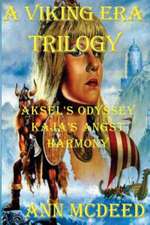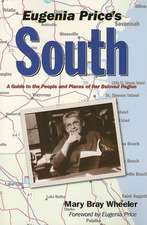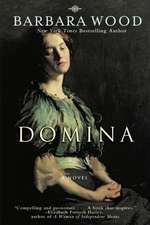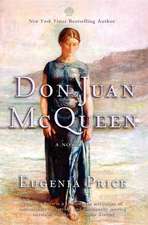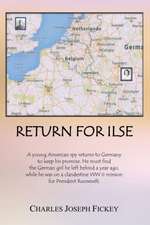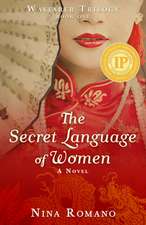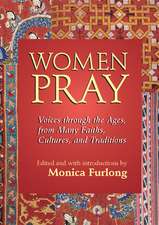Maria: First Novel in the Florida Trilogy: Florida Trilogy
Autor Eugenia Priceen Limba Engleză Paperback – 3 dec 2012
The spirited story of Mary Evans, an extraordinary woman from colonial Charles Town who finds a place for herself in St. Augustine after Spain relinquishes Florida.
In this captivating tale, Eugenia Price paints a vivid picture of the tumultuous historic and political events that shaped the life of Mary Evans, a remarkably independent woman in the colonial south. Born in Charles Town, South Carolina, Mary, a skilled midwife, accompanied her first husband, British soldier David Fenwick, when his regiment fought the Spanish in Cuba. When Spain agreed to give all of Florida in exchange for the city of Havana, Mary (who became known as Maria) and her husband were forced to relocate to the newly British garrison town of St. Augustine, Florida.
Maria exposes challenges that would unnerve a less resourceful woman, but she made a name for herself—developing and enhancing her position with influential citizens of St. Augustine. Eventually marrying three times, Maria proved herself to be an extraordinary woman, for any day or time.
In this captivating tale, Eugenia Price paints a vivid picture of the tumultuous historic and political events that shaped the life of Mary Evans, a remarkably independent woman in the colonial south. Born in Charles Town, South Carolina, Mary, a skilled midwife, accompanied her first husband, British soldier David Fenwick, when his regiment fought the Spanish in Cuba. When Spain agreed to give all of Florida in exchange for the city of Havana, Mary (who became known as Maria) and her husband were forced to relocate to the newly British garrison town of St. Augustine, Florida.
Maria exposes challenges that would unnerve a less resourceful woman, but she made a name for herself—developing and enhancing her position with influential citizens of St. Augustine. Eventually marrying three times, Maria proved herself to be an extraordinary woman, for any day or time.
| Toate formatele și edițiile | Preț | Express |
|---|---|---|
| Paperback (1) | 134.62 lei 3-5 săpt. | |
| Turner – 3 dec 2012 | 134.62 lei 3-5 săpt. | |
| Hardback (1) | 198.83 lei 3-5 săpt. | |
| Turner – 3 dec 2012 | 198.83 lei 3-5 săpt. |
Preț: 134.62 lei
Nou
Puncte Express: 202
Preț estimativ în valută:
25.76€ • 27.55$ • 21.48£
25.76€ • 27.55$ • 21.48£
Carte disponibilă
Livrare economică 28 martie-11 aprilie
Preluare comenzi: 021 569.72.76
Specificații
ISBN-13: 9781618580085
ISBN-10: 1618580086
Pagini: 404
Dimensiuni: 133 x 203 x 23 mm
Greutate: 0.46 kg
Ediția:Eugenia Price C
Editura: Turner
Seria Florida Trilogy
ISBN-10: 1618580086
Pagini: 404
Dimensiuni: 133 x 203 x 23 mm
Greutate: 0.46 kg
Ediția:Eugenia Price C
Editura: Turner
Seria Florida Trilogy
Recenzii
“Ms. Price [has a] knack for recreating a bygone era with such compelling and authentic historic detail.” —The New York Times
“Eugenia Price is a name spoken with affection by millions of readers.” —Publishers Weekly
“Newcomers to Ms. Price's work should soon join her legions of faithful readers.” —Chattanooga Times
“[Price is]” a consummate storyteller of meticulously researched and emotionally moving novels of the South.” —Rave Reviews
“Eugenia Price is a name spoken with affection by millions of readers.” —Publishers Weekly
“Newcomers to Ms. Price's work should soon join her legions of faithful readers.” —Chattanooga Times
“[Price is]” a consummate storyteller of meticulously researched and emotionally moving novels of the South.” —Rave Reviews
Notă biografică
Eugenia Price (1916ߝ1996) was a New York Times bestselling author of 39 books, with over 40 million copies sold. She is best known for her historical romantic antebellum novels.
Extras
In spite of the heat, pride of appearance forced Maria to wear her husband’s military watch cape. The sun in St. Augustine was unremitting. Even the breeze, nearly a wind, sent gusts of heavy heat over her strong, slender body, whipping the folds of the cape as she walked. She could taste the salt air and smell the fishy water of Matanzas Bay.
All but two of the six petticoats she was allowed to pack in Charles Town more than a year ago had long since been worn out or torn for bandages in Havana during the weeks of fighting against the Spaniards. Maria Evans Fenwick, along with her best friend, Ann Cameron, and the four other Charles Town women permitted to go to war with their British husbands, had shredded their own clothing to dress the wounds of the soldiers they nursed.
The remaining outer petticoat which she wore now, faded blue and frayed, was ripped all the way up one side—caught on a nail while she was boarding the convoy ship, Renown, the day they sailed from Havana some two weeks ago. Sailing also on the Renown to the strange Florida land were her sick husband, Sergeant David Fenwick, and the other soldiers still too ill from fever or dysentery to care for themselves. The healthy members of four companies of David’s British Royal First Regiment of Foot—the Royals—were so pathetically few in number that they could all be transported to St. Augustine in the two small schooners which followed the Renown. Well over half, more from fever than from battle wounds, had died. The mood aboard all three ships had been glum. Britain had won the battle for Havana, but there had been little heart or time to revel in the victory. Only a few, Maria and David among them, had found places to settle in Cuba. Then, early in July of this year, 1763, abrupt orders came for all British soldiers of occupation to abandon Havana and occupy St. Augustine, long the seat of Spanish power in Florida. The reaction was one of shock, disbelief, and resentment. In Paris, far from the scene of battle, an agreement had been made between Spain and England, and the exhausted, dispirited troops were uprooted and shipped out.
As the Renown had reached the dangerous St. Augustine bar yesterday, not one needle or piece of thread could be found among the six women aboard. Maria’s outer petticoat was unmended, and her last bodice was rust-stained and washed so thin that it no longer gave proper support to her full, high breasts. She wore her only shift today, too, because during the long hours of last night, in an attempt to keep cool packs on David’s head in the oppressive heat of the old Spanish fort where they were billeted, she had torn up her one extra shift. So, to hide her shabby clothing, she wore his watch cape today. It became her, she knew, and Maria Evans Fenwick had no intention of showing herself a ragamuffin on her first day in St. Augustine.
On the April morning well over two months ago, when Captain John Hedges had informed the troops in Havana that Cuba, for which the British had fought so hard, was to be traded back to Spain in exchange for Florida, Maria had suspected that David would be sent there with the occupation forces, in spite of his lingering weakness from fever contracted just before the British victory. Too many had died in Cuba for a man obviously recuperating to be discharged. To most women, her mission today would be unnerving; a lone British woman hunting a house in a crumbling, foreign town filled with Spanish residents in turmoil because the King of Spain had sacrificed their long-inhabited province in order to regain Cuba. There was no reason to expect favors or kindness from these perplexed, troubled people; still, Maria was not unnerved. She was tired but, by sheer will, she had taken hold of today, and hope was not so hard to come by as it had been on the voyage over. The reason? David, who had filled her horizon since her first sight of him two years ago, seemed a bit more like his old, cheerful self this morning, after a fair night’s rest on the wooden sleeping shelf at the fort, where he lay beside the other ill men housed in the makeshift infirmary. Oh, he was thin—thin and pale—and needed the healing rays of the sun to restore color to his cheeks, the strength to his arms, and the laughter to his eyes, but he could walk now, and early this morning she had helped him out onto the fort’s ramparts, where their Charles Town friend, Private James Cameron, had promised to see to him.
All but two of the six petticoats she was allowed to pack in Charles Town more than a year ago had long since been worn out or torn for bandages in Havana during the weeks of fighting against the Spaniards. Maria Evans Fenwick, along with her best friend, Ann Cameron, and the four other Charles Town women permitted to go to war with their British husbands, had shredded their own clothing to dress the wounds of the soldiers they nursed.
The remaining outer petticoat which she wore now, faded blue and frayed, was ripped all the way up one side—caught on a nail while she was boarding the convoy ship, Renown, the day they sailed from Havana some two weeks ago. Sailing also on the Renown to the strange Florida land were her sick husband, Sergeant David Fenwick, and the other soldiers still too ill from fever or dysentery to care for themselves. The healthy members of four companies of David’s British Royal First Regiment of Foot—the Royals—were so pathetically few in number that they could all be transported to St. Augustine in the two small schooners which followed the Renown. Well over half, more from fever than from battle wounds, had died. The mood aboard all three ships had been glum. Britain had won the battle for Havana, but there had been little heart or time to revel in the victory. Only a few, Maria and David among them, had found places to settle in Cuba. Then, early in July of this year, 1763, abrupt orders came for all British soldiers of occupation to abandon Havana and occupy St. Augustine, long the seat of Spanish power in Florida. The reaction was one of shock, disbelief, and resentment. In Paris, far from the scene of battle, an agreement had been made between Spain and England, and the exhausted, dispirited troops were uprooted and shipped out.
As the Renown had reached the dangerous St. Augustine bar yesterday, not one needle or piece of thread could be found among the six women aboard. Maria’s outer petticoat was unmended, and her last bodice was rust-stained and washed so thin that it no longer gave proper support to her full, high breasts. She wore her only shift today, too, because during the long hours of last night, in an attempt to keep cool packs on David’s head in the oppressive heat of the old Spanish fort where they were billeted, she had torn up her one extra shift. So, to hide her shabby clothing, she wore his watch cape today. It became her, she knew, and Maria Evans Fenwick had no intention of showing herself a ragamuffin on her first day in St. Augustine.
On the April morning well over two months ago, when Captain John Hedges had informed the troops in Havana that Cuba, for which the British had fought so hard, was to be traded back to Spain in exchange for Florida, Maria had suspected that David would be sent there with the occupation forces, in spite of his lingering weakness from fever contracted just before the British victory. Too many had died in Cuba for a man obviously recuperating to be discharged. To most women, her mission today would be unnerving; a lone British woman hunting a house in a crumbling, foreign town filled with Spanish residents in turmoil because the King of Spain had sacrificed their long-inhabited province in order to regain Cuba. There was no reason to expect favors or kindness from these perplexed, troubled people; still, Maria was not unnerved. She was tired but, by sheer will, she had taken hold of today, and hope was not so hard to come by as it had been on the voyage over. The reason? David, who had filled her horizon since her first sight of him two years ago, seemed a bit more like his old, cheerful self this morning, after a fair night’s rest on the wooden sleeping shelf at the fort, where he lay beside the other ill men housed in the makeshift infirmary. Oh, he was thin—thin and pale—and needed the healing rays of the sun to restore color to his cheeks, the strength to his arms, and the laughter to his eyes, but he could walk now, and early this morning she had helped him out onto the fort’s ramparts, where their Charles Town friend, Private James Cameron, had promised to see to him.
Textul de pe ultima copertă
In this captivating tale, Eugenia Price paints a vivid picture of the tumultuous historic and political events that shaped the life of Mary Evans, a remarkably independent woman in the colonial south. Born in Charles Town, South Carolina, Mary, a skilled midwife, accompanied her first husband, British soldier David Fenwick, when his regiment fought the Spanish in Cuba. When Spain agreed to give all of Florida in exchange for the city of Havana, Mary (who became known as Maria) and her husband were forced to relocate to the newly British garrison town of St. Augustine, Florida.
Maria exposes challenges that would unnerve a less resourceful woman, but she made a name for herself—developing and enhancing her position with influential citizens of St. Augustine. Eventually marrying three times, Maria proved herself to be an extraordinary woman, for any day or time.
Maria exposes challenges that would unnerve a less resourceful woman, but she made a name for herself—developing and enhancing her position with influential citizens of St. Augustine. Eventually marrying three times, Maria proved herself to be an extraordinary woman, for any day or time.
Descriere
The spirited story of Mary Evans, an extraordinary woman from colonial Charles Town who finds a place for herself in St. Augustine after Spain relinquishes Florida.
In this captivating tale, Eugenia Price paints a vivid picture of the tumultuous historic and political events that shaped the life of Mary Evans, a remarkably independent woman in the colonial south. Born in Charles Town, South Carolina, Mary, a skilled midwife, accompanied her first husband, British soldier David Fenwick, when his regiment fought the Spanish in Cuba. When Spain agreed to give all of Florida in exchange for the city of Havana, Mary (who became known as Maria) and her husband were forced to relocate to the newly British garrison town of St. Augustine, Florida.
Maria exposes challenges that would unnerve a less resourceful woman, but she made a name for herself—developing and enhancing her position with influential citizens of St. Augustine. Eventually marrying three times, Maria proved herself to be an extraordinary woman, for any day or time.
In this captivating tale, Eugenia Price paints a vivid picture of the tumultuous historic and political events that shaped the life of Mary Evans, a remarkably independent woman in the colonial south. Born in Charles Town, South Carolina, Mary, a skilled midwife, accompanied her first husband, British soldier David Fenwick, when his regiment fought the Spanish in Cuba. When Spain agreed to give all of Florida in exchange for the city of Havana, Mary (who became known as Maria) and her husband were forced to relocate to the newly British garrison town of St. Augustine, Florida.
Maria exposes challenges that would unnerve a less resourceful woman, but she made a name for herself—developing and enhancing her position with influential citizens of St. Augustine. Eventually marrying three times, Maria proved herself to be an extraordinary woman, for any day or time.




